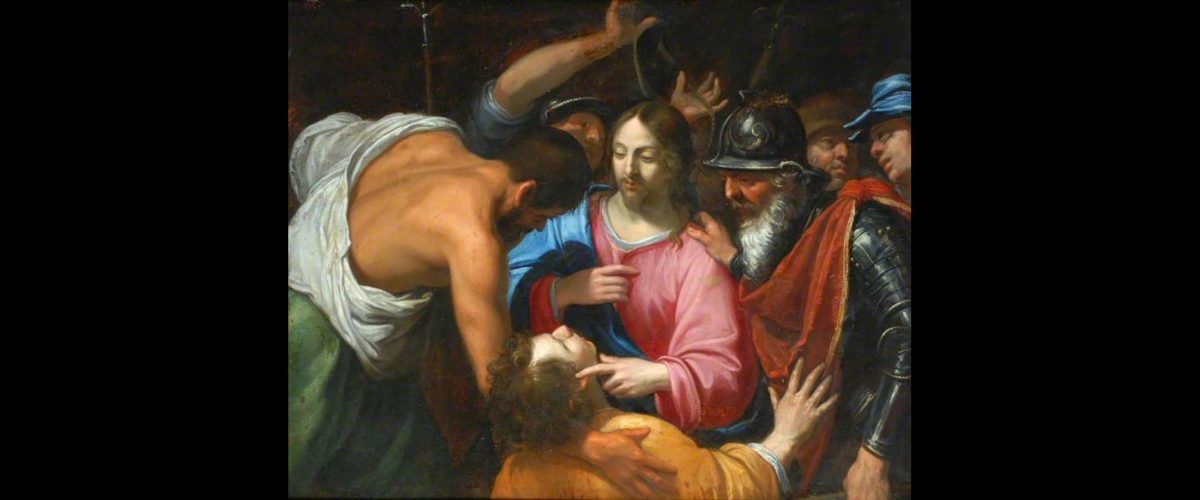“With Louisiana Leading Way, More States Are Likely to Take Up Christian Agenda.”

Bill Leonard
That’s how The New York Times began a June 22 story detailing that the governor of Louisiana “signed bill after bill this week on public education in the state, making it clear he believed God was guiding his hand.”
Through this Louisiana legislation:
- Transgender students must be addressed by their designated birth certificate gender unless a parental approval of an alternative term is provided.
- Public schools are now permitted to secure paid or volunteer chaplains, what the governor called “a great step for expanding faith in public schools.”
- Every classroom from public elementary schools to state universities must post a copy of the Ten Commandments, in a font large enough to be read from every vantage point. The approved text truncates the Ten Commandments considerably from the biblical passages of Exodus 20 and Deuteronomy 5, while retaining King James Version biblical language:
I am the Lord thy God.
Thou shalt have no other gods before me.
Thou shalt not make to thyself any graven images.
Thou shalt not take the Name of the Lord thy God in vain.
Remember the Sabbath day, to keep it holy.
Honor thy father and thy mother, that thy days may be long upon the land which the Lord thy God giveth thee.
Thou shalt not kill.
Thou shalt not commit adultery.
Thou shalt not steal.
Thou shalt not bear false witness against thy neighbor.
Thou shalt not covet thy neighbor’s house.
The “commandmentization” (I made that word up.) of Louisiana classrooms exemplifies a successful Christian nationalist effort to secure legislative privilege and empowerment of a publicly specific “Christian agenda,” religious pluralism be damned. Some 14 other states have secured or are introducing similar laws.
As Louisiana schools prepare to implement these state mandates, questions abound:
- Will all students be required to carry a copy of their birth certificates at all times?
- Must school “chaplains” be appropriately trained counselors, and will they represent a variety of ecumenical and interfaith traditions?
- Will students and/or their parents be allowed to select a particular “chaplain” who represents their specific faith tradition?
- Will female “chaplains” be permitted? (SBC students could be reminded not to call them “pastors.”)
- Who will exegete the meaning of the Ten Commandments for each specific class? School administrators? Teachers? “Chaplains?” Or will the state issue an “approved” interpretation?
- Here’s a thought: Given that other states are following suit, and as students return in the fall, might the current presidential candidates be invited to contribute their own reflections on the Commandments and their efforts to abide by them?
Proponents of the Ten Commandment legislation tout the value of their God-centered morality, but their inherent theological implications seem inescapable, starting with commandment No. 1: “I am the Lord thy God.”
But which God is it? The Yahweh of Jewish monotheism? The “God in three persons, blessed Trinity” of Father, Son and Spirit? The “There is no God but God, and Mohammed is his prophet” deity?
Yes, Judaism, Christianity and Islam affirm the Mosaic Law code, but their understanding of the God who gave it to Moses varies greatly.
And what of the “other gods” worshiped — for example, by the likes of Hindu, Sikh and Bahai students? Do their gods count at all or are they idolatrous? If such students inquire accordingly, how will their teachers respond?
“And what of commandment No. 7?”
And what of commandment No. 7? Wasn’t it Jimmy Kimmel or another of the late-night comedians who asked how third grade teachers will explain “the adultery one?”
Can you mandate use of a deity-centric moral code without identifying the precise deity, or are students allowed to fill in the blank?
Think such questions are tongue in cheek? Think again, then multiply them by at least 15 to 25 (or more) of the 50 states, many moving to apply those and other legal mandates of the “Christian agenda” in the public square, assisted, in all probability, by the U.S. Congress, perhaps by the next president, and certainly by the Supreme Court.
And that’s the problem. Is it possible that the religiously coercive “Christian agenda,” intended to expand “faith in schools,” courts, legislatures and other political arenas, may actually hasten the decline of American Christian communities. Are these evangelical methods creating an anti-evangelical, pro-secularizing reaction to religious coercion?
A recent article in the Washington Post illustrates the dilemma. Titled “Trump Has Changed What It Means to be Evangelical,” it offers a shocking statistical and ideological revelation of the present moment. The author, Shadi Hamid, editorial contributor and research professor of Islamic Studies at Fuller Seminary, writes:
After evangelicals embraced Trump, something odd happened. As other Christian denominations hemorrhaged members, evangelicals saw their ranks grow; from 2016 to 2020, their share of the white adult population increased to 29%, from 25%, according to the Pew Research Center. The catch was many of these new evangelicals didn’t go to church. They became evangelicals because of what it meant politically, most of all because it was a way to signal support for Donald Trump. Among white Trump supporters who were not evangelicals in 2016, 16% began to identify as evangelical by 2020, suggesting again that politics rather than religion was the driving factor.
Hamid points to recent studies from which he draws sobering conclusions. In the Cooperative Election Study (2022), 14% of Muslims, 12% of Hindus and 5% of Jews referred to themselves as evangelical “born-again” Christians. He cites political scientist professor Ryan Burge’s assertion that Republican Muslims and Jews are three times more likely to consider themselves “evangelical” than Democrats with similar backgrounds. This leads Hamid to deduce that much of American evangelicalism “has become about shared political convictions,” that increasingly trump gospel.
“Non-evangelicals are calling themselves ‘evangelical’ to identify their orthodoxy to a particular political position and/or party.”
Burge concludes: “Partisan commitments are replacing religious affiliation as people’s overarching source of identity.” Thus, nonevangelicals are calling themselves “evangelical” to identify their orthodoxy to a particular political position and/or party. Yet as elements of the “Christian agenda” become the law of the land, American evangelicals may find their coercive political methods are actually driving people away from Jesus at breakneck speed.
Speaking of Jesus, remember his gospel conversation with John the Baptizer in Matthew 13:3-5?
John, sitting in prison, is having second thoughts, so he “sends word” to Jesus: “Are you the one who is to come, or are we to wait for another?” Jesus answered, “Go and tell John what you hear and see: the blind receive their sight, the lame walk, the lepers are cleansed, the deaf hear, the dead are raised, and the poor have good news brought to them. And blessed is anyone who takes no offense at me.”
Meaning no offense, but what if we posted that Christian agenda on the walls of … our hearts, and in as big a font as we can manage.
Bill Leonard is founding dean and the James and Marilyn Dunn professor of Baptist studies and church history emeritus at Wake Forest University School of Divinity in Winston-Salem, N.C. He is the author or editor of 25 books. A native Texan, he lives in Winston-Salem with his wife, Candyce, and their daughter, Stephanie.
Related articles:
Why is this still happening? | Opinion by Holly Hollman
Gov. Landry gets his wish: Louisiana Ten Commandments law to be challenged in court
Baptists oppose Louisiana Ten Commandments bill
Gov. Landry and the new Ten Commandments | Opinion by Michael Friday


